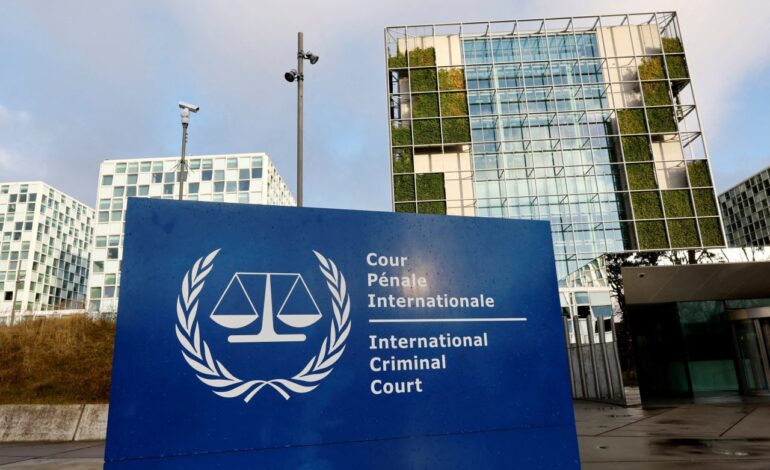Trump Targets ICC with New Sanctions Amid Legal Controversies

Former President Donald Trump has announced new sanctions targeting individuals associated with the International Criminal Court (ICC). This decision, made public on March 15, 2024, reflects ongoing tensions between the United States and the ICC, particularly in relation to international law and American sovereignty.
The sanctions come as Trump continues to assert that the ICC poses a threat to American interests. He has previously criticized the court for what he perceives as overreach in its jurisdiction, particularly regarding investigations into alleged war crimes committed by U.S. military personnel. The implications of these sanctions could extend beyond the individuals directly affected, potentially influencing how the United States engages with global legal frameworks.
Legal and Political Ramifications
The announcement has sparked significant debate among legal experts and policymakers. Critics argue that such sanctions undermine the rule of law and could alienate the United States from its allies. They contend that the ICC serves a crucial role in promoting accountability for serious crimes, including war crimes and genocide.
Supporters of Trump’s sanctions, however, view them as a necessary measure to protect American service members from what they consider politically motivated prosecutions. This view is particularly resonant among Trump’s base, who have long perceived international institutions as adversarial to U.S. sovereignty.
According to a statement from the White House, the sanctions will specifically target individuals deemed responsible for “attacking U.S. interests and undermining the sovereignty of the nation.” As the situation unfolds, the impact on international relations and U.S. standing in global legal discussions remains uncertain.
Broader Implications for U.S. Foreign Policy
The implications of these sanctions on American foreign policy could be profound. Analysts suggest that the U.S. has historically played a significant role in shaping international law and global governance. By taking a confrontational stance against the ICC, the Trump administration may redefine how the U.S. interacts with international legal bodies in the future.
Furthermore, this move could complicate relationships with allies who support the ICC’s mission. Countries that are signatories to the Rome Statute, which established the ICC, may perceive the sanctions as a challenge to the court’s legitimacy and their commitments to international justice.
As discussions around these sanctions continue, the broader dialogue surrounding the ICC and its role in the global community is likely to intensify. The U.S. stands at a crossroads, weighing its national interests against the potential benefits of engaging with international legal frameworks.
In conclusion, Trump’s latest sanctions against individuals linked to the ICC signal a decisive stance in an ongoing conflict over international law and U.S. sovereignty. The long-term effects of this policy may reverberate through international relations and influence how justice is administered on a global scale.






